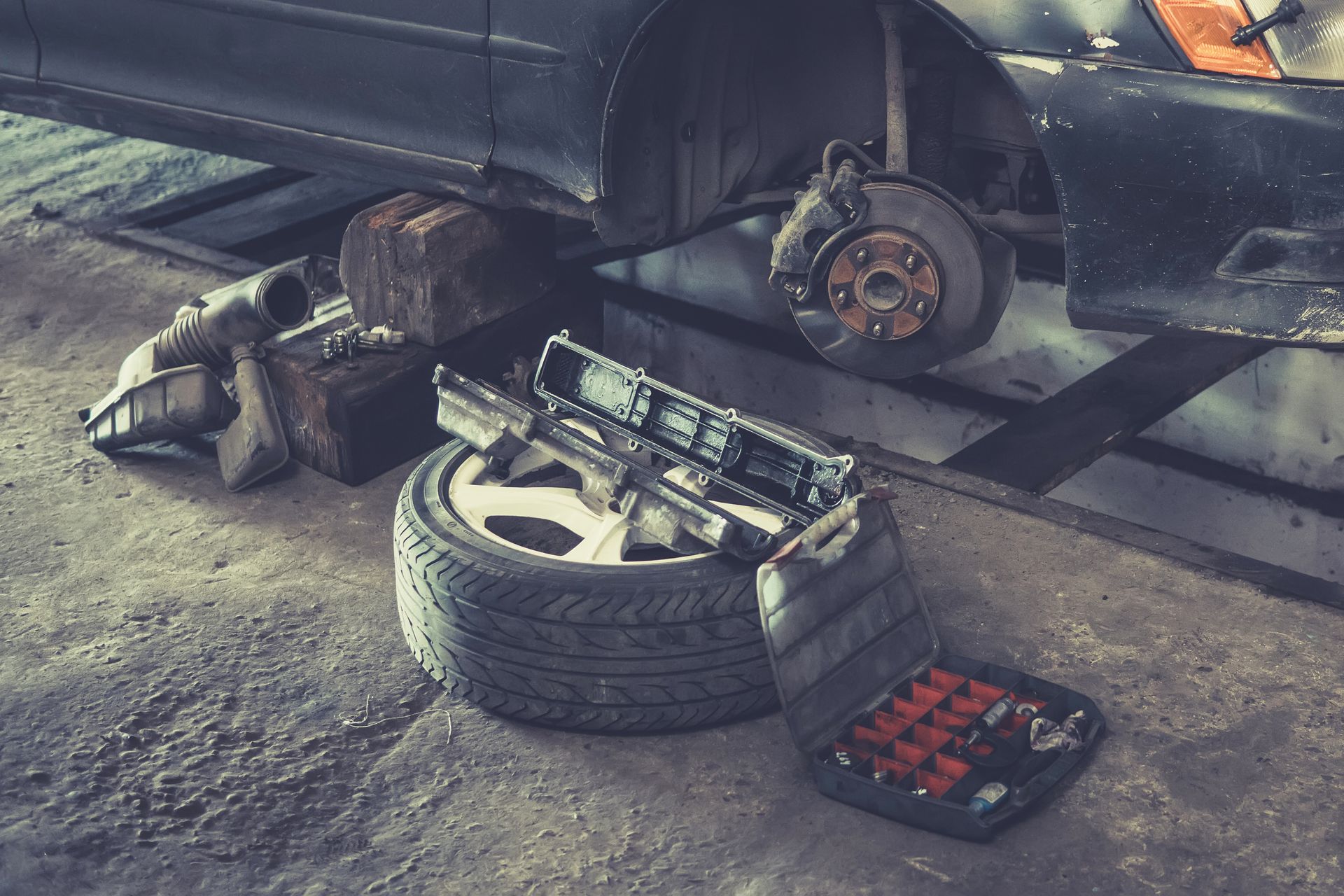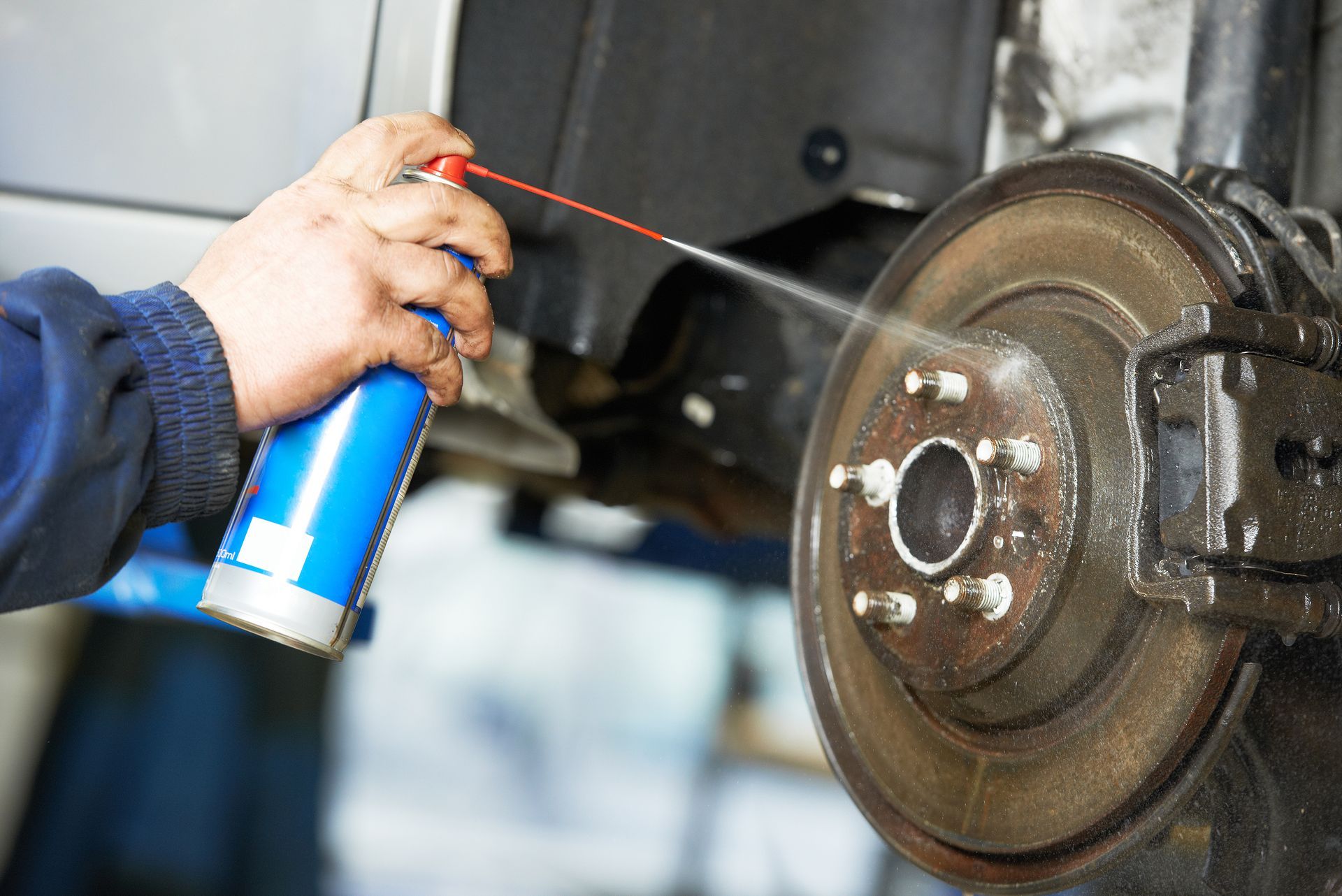Signs Your Car Needs Brake Repair – Don’t Ignore These Warnings

Signs Your Car Needs Brake Repair – Don’t Ignore These Warnings
Your car's brakes are its most critical safety feature. They protect you, your passengers, and other road users.
But what if they're not working as they should?
Recognizing the signs that your car needs brake repair is crucial. It can prevent accidents and costly damage.
In this article, we'll guide you through these warning signs. From unusual noises to a spongy brake pedal, we'll cover it all.
We'll also explain the role of different brake components. This will help you understand what might be going wrong.
So, let's dive in and learn how to keep your brakes, and your car, in top shape.
Understanding Your Car's Brake System
Your car's brake system is a complex network of parts. They work together to slow down or stop your vehicle.
When you press the brake pedal, it triggers a chain of events. This involves the brake pad, rotor, caliper, and drum.
Each component plays a vital role in the braking process. If one part fails, it can compromise the entire system.
That's why understanding how your brake system works is key. It can help you spot issues early and ensure your vehicle remains safe to drive.
The Role of Brake Pads, Rotors, Calipers, and Drums
Brake pads are the first line of defense in your brake system. They create friction against the brake rotors to slow your vehicle.
When the brake pads wear thin, they can't create enough friction. This can lead to longer stopping distances and potential brake failure.
Brake rotors are large metal discs that the brake pads press against. If they become warped or worn, they can cause vibrations and reduced braking power.
Brake calipers house the brake pads and apply the force needed to clamp them onto the rotors. A malfunctioning caliper can lead to uneven braking or dragging.
Brake drums are found in older vehicles or on the rear wheels of some cars. They work similarly to rotors but are more prone to overheating and wear.
Understanding these components can help you recognize when they're not working as they should.
Top Signs of Brake Wear or Failure
Your car's brakes won't fail without warning. They'll usually give you signs of trouble.
One of the most common signs is unusual noises. This could be a squeaking, grinding, or rattling noise.
Another sign is issues with the brake pedal. It might feel spongy or less responsive than usual.
Visual cues can also indicate brake wear or failure. This includes worn brake pads or a brake warning light on your dashboard.
Physical sensations while driving can also be a sign. You might feel vibrations or your car might pull to one side when braking.
Finally, unusual smells or leaks can indicate a problem. A burning smell or fluid on the ground under your car are serious signs of brake trouble.
Unusual Noises: Squeaking, Grinding, and Rattling
Unusual noises are often the first sign of brake trouble. A squeaking noise can indicate worn brake pads.
A grinding noise is more serious. It could mean your brake pads are completely worn out.
A rattling noise can indicate a problem with your brake calipers or hardware.
These noises should never be ignored. They're your car's way of telling you something is wrong.
Brake Pedal Issues: Spongy Feeling and Reduced Responsiveness
If your brake pedal feels spongy or less responsive, it's a sign of trouble. This could indicate a problem with your brake fluid or brake lines.
A spongy pedal could also mean your brake pads are worn out.
Reduced responsiveness is a serious issue. It could mean your brakes are failing.
If your brake pedal isn't responding as it should, get your brakes checked immediately.
Visual Cues: Worn Pads and Brake Warning Lights
Visual cues can also indicate brake trouble. If you can see your brake pads through your wheel, check their thickness.
If they're less than 1/4 inch thick, they need to be replaced.
A brake warning light on your dashboard is another visual cue. This light is connected to your car's computer and can indicate several issues.
If this light comes on, get your brakes checked as soon as possible.
Physical Sensations: Vibrations and Pulling
Physical sensations while driving can also indicate brake trouble. If your brake pedal vibrates, it could mean your brake rotors are warped.
If your car pulls to one side when braking, it could mean your brake pads are worn unevenly.
It could also indicate a problem with your brake calipers.
These sensations are signs that your brakes aren't working as they should.
Smells and Leaks: Burning Odors and Fluid on the Ground
A burning smell while driving is a serious sign of brake trouble. It could mean your brakes are overheating.
If you see fluid on the ground under your car, it could be brake fluid. This is a critical component of your brake system.
A leak could mean your brakes won't work properly.
If you notice a burning smell or a leak, get your brakes checked immediately.
The Consequences of Ignoring Brake Repair Signs
Ignoring the signs of brake trouble can lead to serious consequences. Not only can it lead to more expensive repairs, but it can also put your safety at risk.
If your brakes fail while you're driving, it could result in a serious accident. Don't ignore these warnings.
When to Seek Professional Brake Repair
If you notice any of the signs mentioned above, it's time to seek professional help. Don't attempt to fix brake issues on your own unless you have the necessary skills and tools.
Remember, your safety and the safety of others on the road is paramount. Always prioritize brake repairs.
Conclusion: The Importance of Timely Brake Maintenance
In conclusion, your car's brake system is vital for safety. Ignoring signs of brake wear or failure can lead to accidents or costly repairs.
Regular inspections and maintenance can help catch issues early. This can extend the lifespan of your brake components and save you money in the long run.
Remember, if you're unsure about any aspect of your brake system, it's best to consult a professional. They can provide expert advice and ensure your brakes are in top condition.
Stay safe on the road by paying attention to these signs your car needs brake repair. Don't ignore these warnings.


